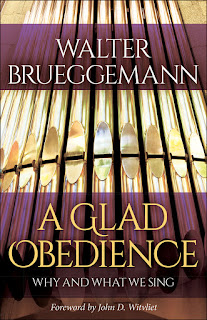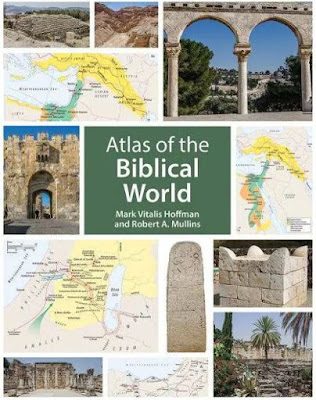The Psalms are a perennial favorite—even among those who don’t read the Bible. However, one must admit that some are more of a favorite than others. Many struggle with the implications of the final lines of 137, for example. Of course, many more of the collection offer hope and comfort, which accounts for their popularity. And the collection doesn’t hide from reality, thus the humanity of all befits what most regard as a hymnal for the Temple in Jerusalem.
In one of his typical short but thought-filled topical books, Walter Brueggemann offers insights into the lasting value of the Psalter. He is not unlike a classical prophet, addressing the people of his day to offer comfort, strength, and prods to improvement. His approach deconstructs social attitudes from a perspective that stands outside of political boundaries. In this book, he writes that singing is a way of celebrating our humanness as a gift of God (xvi). Further, anthropologically, we are engaged in “world construction” when we sing hymns, because the world that we sing about is rooted in yet very different from the one that regularly stands before us (1).
As I write this, two trends are prominent in the news. First, a pandemic has closed most of our churches to public worship, and thus removed singing together from many lives (although there are some well-done technological solutions). So it seems appropriate to think about what singing in worship means to us. Second, we are becoming forcefully aware, often in a disturbing manner, of many levels and forms of discrimination in modern society—as well as how their persistence is abetted by often-unrecognized social structures.
As I wrote this, I remembered classes I’ve taken and taught that deal with music in worship, studies that contain significant portions about African-American communities. There is a sense of these roots, whether singing Psalms, the unique slave songs, or modern expressions, of the promise of a very different world. We come to understand, through music, that among these ancient songs are also protest songs, and that in protest there is hope. (Anyone wishing to learn more about the role of music in the Black church and it social role should look into Eileen Southern, The Music of Black Americans). These factors are all a good indicator that, as Brueggemann writes, we sing because life is given by, sustained by, and claimed by God. We sing because we refuse to have our lives be any less—or more—than that (2).
Singing is an act of resistance—whether protest songs, laments, spirituals, prayers, or others. The Psalter, whose Hebrew title םילהת means “praises,” includes all of these forms. The Psalms are also a gift. And they are a reminder, as we sing or recite them, that the impulse to value everything according to its monetary value, to make all of life a commodity to be bought, sold, or traded, is not new, and constant vigilance is required to affirm life first (14).
With these thoughts, Brueggemann moves through selections of the Psalter, where he finds many, diverse voices. This diversity is also why the Psalms endure through time and cultures. The constant is the divine pledge of דסֶחֶ (hesed, steadfast love), and this is a pledge of solidarity and fidelity to Creation (177).
And this leads to disability, especially the implications for social and medical models. Lives of disabled people are often compromised by judging them according to various notions of economic value, such as the ability to produce inside a discriminatory system, or the costs of care. This kind of thinking reached a peak in Nazi Germany with the Aktion T-4 program of mass murder. Today, while no one openly advocates such actions, disabled people join with other groups as assistance programs are routinely threatened with less-than-subsistence funds, insufficient health care, and restricted access in the name of economics. Filicide of disabled children often receives little or no attention or punishment. Correcting accessibility violations requires private lawsuits, and nearly 30 years after a law requiring access was passed, still brings opposition. Rather than accept diversity, solutions are often equally unrealistic and demeaning: (involuntarily) submit to prayer for healing, or some medical approaches that treat people as if they were machines, requiring enduring “a series of technological fixes” (195). We don’t need labels like “special needs,” we need the same acceptance that others expect and whether realizing it or not, regard as their privilege.
 |
| Cover and back pages of the program book for presentation at First UCC, Xenia. Computer technology has advanced since then. |
I would like to thank William Crowder for working with me on a project, The Psalms of Praise, which we presented at his then-pastoral charge, First United Christian Church of Xenia OH, which provided an unparalleled opportunity to first gather my thoughts and reflections on the Psalms.
I borrowed this book from the Indianapolis Public Library, promising in return to return it within three weeks. I have fulfilled that promise.



